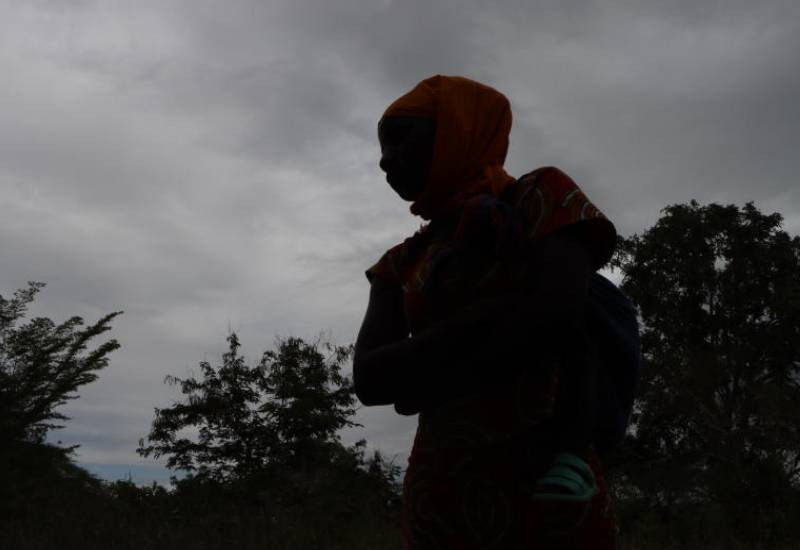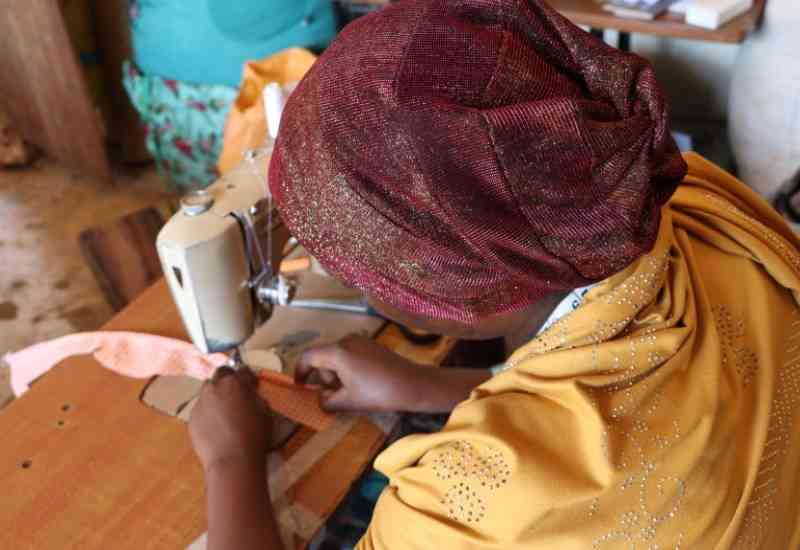
Is there anyone who does not know a young girl put on the path of motherhood too early?
The Kenya Demographics Health Survey (KDHS 2022) shows that Samburu County has the highest percentage of women aged 15-19 who have ever been pregnant (50 per cent). Nyeri and Nyandarua have the lowest percentages (5 per cent each).
We rarely stop to think: 'How do girls get to this point?'
How do teenagers, under the protection of parents (and the state), find themselves becoming mothers?
If you ask 17-year-old Anita - mother of one - from Baba Dogo in Nairobi, it is sheer turbulence of the adolescent years.
Moraa from Kisii, who gave birth aged 15, says it is the naivety of a young woman hungry for her knight in shining armour; an unrelenting belief in fairy tales.
In Ndavaya, a village on the South Coast, 20-year-old Charo* says it is peer pressure: being called 'a child' for having never experienced sex.
She was barely 17 when she decided to try it out; so that she too could tell her peers she was 'grown up'.
"It was over the period when schools were closed due to Covid-19. A boy (slightly older than me) had been showing me interest.
"He would wait for me on my way to the shops. He would tell me his desires and how he wanted me to be his girlfriend.
"I went along with it: I wanted to experience sex too. One thing led to another and we ended up sleeping together a few times," Charo says.
Unwanted, unwelcome
Then the inevitable happened: she fell pregnant.
"When I missed my periods I knew right away what was up! I did not even need to test. My first reaction was to abort and get rid of it; especially because I come from a poor family and I lost my father when I was still a child. But I did not even have the money to do the abortion."
Her elder brothers asked her to relocate to 'where she got pregnant'. She moved in with the boy's family - effectively becoming his wife. She was, however, an unwelcome guest.
"When schools reopened, he went back to school and left me with his parents - who just did not want me around: I was mistreated, to say the least," she says.
In June 2021 Charo gave birth. She has never reported back to school and has all, but given up on education.

In Ukunda, Kwale County, 18-year-old Mwanaisha*, heads to work with her two-year-old in tow.
Mwanaisha was dealt a bad hand when, at eight, she lost her mother.
"It is not the best of places to be for a teenage girl to be raised by a father," she says. "A girl has so many needs that a male parent wouldn't understand."
She sat for KCPE in 2019. Due to poverty, she could not progress to secondary school. Alone at home, with nothing to do, life was full of misery.
"When a young man started courting me I agreed to see him. He was mature (I thought) and would be, therefore, a responsible man.
"We dated; he would waylay me on my way to the market. I fell in love with him.
"I knew he would marry me and we would live happily ever after. He would rescue me from the despair I was feeling at the time," she says.
After close to two years of dating, and numerous trysts, Mwanaisha fell pregnant: a pregnancy she knew of after a compulsory pregnancy test at a tailoring TVET college she was set to join.
"Finally, my father was doing something about my future, and here I was; pregnant. It was the last thing I needed to hear," she says.
She fled home to live with her grandmother. And her father did not bother paying college fees any further.
To make matters worse, the man she had fallen in love with, the father of the baby she was carrying, refused responsibility.
Poor choice
Not far from Ukunda, we meet Nafsa Ali. At the age of 21, she finds herself a mother of two.
Nafsa first gave birth at the age of 13. "The man was a boda-boda guy. He did not force himself on me. He had approached me for a relationship and I accepted," she says.
Nafsa says when she hit adolescence, and the hormones kicked in, she was impish: making the poor choice to engage in sex.
"I cannot blame my parents. Adolescence had made me a generally difficult child," she says, visibly emotional.
Nafsa would then meet a new suitor to whom she would commit to marriage. With him, they would have her second child.
"I am still legally married, but the marriage is not working - at least for me," she says.
The memories of everything that has transpired since giving in to sex in her adolescent years make her eyes well with tears.
"I wish I knew how all these would affect me: I would do things differently," she says, her voice cracking.
Nafsa and Mwanaisha have been undergoing counselling through Mombasa-based CBO Sauti Ya Wanawake; funded by Equality Now - an international Human Rights organisation.
They also paid Mwanaisha's fees; allowing her to complete her tailoring studies in college.
In Kwale County, where the two hail from, the most common vice affecting girls is older men enticing teenage girls into sex, says Kivuli Alose, the Children's Officer in charge of Msambweni Sub-county.
"This is a crime: our laws do not allow children to consent to sex. The law calls this defilement. The law expects that all adults will make the right decision and not engage in sex with a minor. An adult who has sexual relations with a minor risks jail.
The penalty for defiling a minor ranges from 15 years in prison to life imprisonment - depending on the age of the minor," says Jean Murunga, an advocate of the High Court of Kenya, and Equality Now's Program Officer in charge of Ending Sexual Violence.
Charo has given up on academics. "What I would love is to go for a TVET course: stuff to do with hair braiding and saloon work. But not secondary school. I have a child who cannot wait for me to finish school," she says.
Counselling psychologist Sheila Wachira says parents need to do more to be present in their children's lives.
"Be their friend; know everything that is going through their mind. Listen to their needs and guide them accordingly," she says.
Teenagers who are friends with parents, she reiterates, will trust them enough to say what they are going through and give parents the chance to intervene before young people resort to unwarranted sex.
 The Standard Group Plc is a multi-media organization with investments in media
platforms spanning newspaper print
operations, television, radio broadcasting, digital and online services. The
Standard Group is recognized as a
leading multi-media house in Kenya with a key influence in matters of national
and international interest.
The Standard Group Plc is a multi-media organization with investments in media
platforms spanning newspaper print
operations, television, radio broadcasting, digital and online services. The
Standard Group is recognized as a
leading multi-media house in Kenya with a key influence in matters of national
and international interest.

